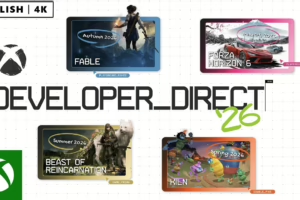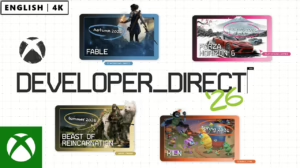The Metaverse Beyond Gaming: Exploring New Virtual Economies
The term "metaverse" evokes visions of sprawling digital landscapes filled with avatars, quests, and the excitement of online gaming. However, the metaverse is evolving beyond just a gaming platform; it is burgeoning into a diverse ecosystem that encompasses social interaction, commerce, real estate, education, and more. As this virtual realm continues to expand, so too do the opportunities for innovative economies that are reshaping how we think about work, transactions, and community.
Understanding the Metaverse
To comprehend what the metaverse can offer beyond gaming, it’s crucial to first define it. The metaverse is a collective virtual shared space, created by the convergence of virtually enhanced physical reality and persistent virtual reality. Users can interact with each other and the digital environment in real-time, facilitated by immersive technologies such as virtual reality (VR), augmented reality (AR), and mixed reality (MR).
While games like "Fortnite" and "Roblox" are frequently highlighted as early examples of metaverse experiences, the potential of this concept stretches far and wide.
New Economies in the Metaverse
-
Virtual Real Estate:
As companies and individuals flock to create a presence in the metaverse, virtual real estate is emerging as a hot commodity. Platforms like Decentraland and The Sandbox have established virtual plots that users can buy, sell, or develop into immersive experiences. Virtual brands, social hubs, and digital storefronts are beginning to populate these environments, creating a marketplace for virtual property that parallels—or even exceeds—some physical real estate markets. -
Digital Goods and NFTs:
Non-fungible tokens (NFTs) have revolutionized ownership in the digital realm, allowing for verifiable ownership of unique digital assets. Artists can sell their work, fashion brands can create digital apparel, and game developers can design exclusive in-game items, all represented and authenticated by NFTs. These assets contribute to a vibrant digital economy, where users can trade, sell, or display their collectibles in virtual storefronts or art galleries, thereby creating new revenue streams for creators. -
Remote Workspaces:
The COVID-19 pandemic catalyzed a shift towards remote working, and the metaverse offers an innovative twist on this trend. Companies are establishing virtual offices where employees can meet, collaborate, and socialize in a 3D space, enhancing the traditional video call experience. This evolution in workspace design is not only catering to existing companies but is also giving rise to startups that focus on creating optimized virtual environments tailored for various industries. -
Education and Training:
The metaverse represents a transformative opportunity in education and skill development. Virtual classrooms, interactive tutorials, and training simulations provide immersive learning experiences that would be difficult to replicate in a physical setting. From medical simulations to virtual museums, educational institutions are beginning to recognize the advantages the metaverse offers in training and skill acquisition, paving the way for new avenues of educational funding, partnerships, and accessibility. - Social and Community Spaces:
Beyond commerce, the metaverse is a space for human connection. Virtual concert venues, social meet-ups, and communal gaming experiences foster a sense of belonging and community. Events hosted by musicians and influencers attract thousands of attendees worldwide, creating a new economy through ticket sales, sponsorships, and merchandise—all within a virtual environment.
Challenges and Considerations
While the opportunities within the metaverse are exciting, numerous challenges remain. Issues such as data privacy, security, regulatory compliance, and the digital divide must be addressed to ensure equitable access and participation. Additionally, sustainability in the metaverse, given the significant energy consumption associated with cryptocurrency and blockchain technologies, must be considered to mitigate environmental impacts.
Conclusion
The expansion of the metaverse beyond gaming represents a significant shift in how we interact with digital experiences and each other. As new virtual economies emerge, they will redefine traditional concepts of ownership, community, and work, offering opportunities for innovative engagement and countless new business models. While we are still in the formative stages of this revolution, the metaverse holds the potential to connect us in ways we can only begin to imagine. As creators, businesses, and consumers explore this evolving landscape, the future may well lie in the balance of virtual and real-world economies, harmonizing them into a coherent digital society.


























Add Comment